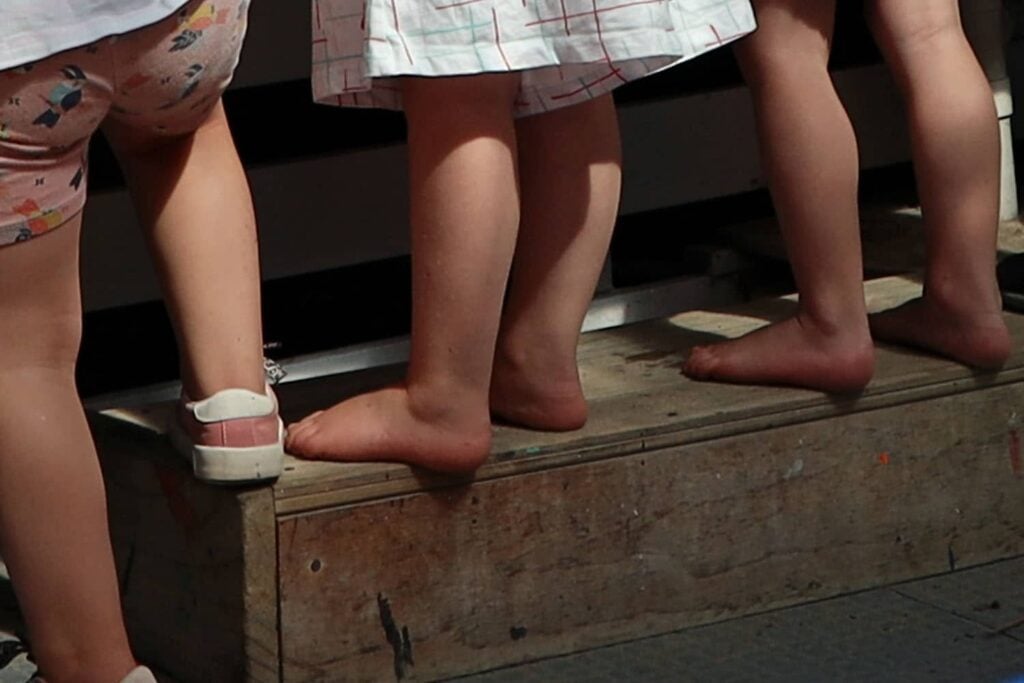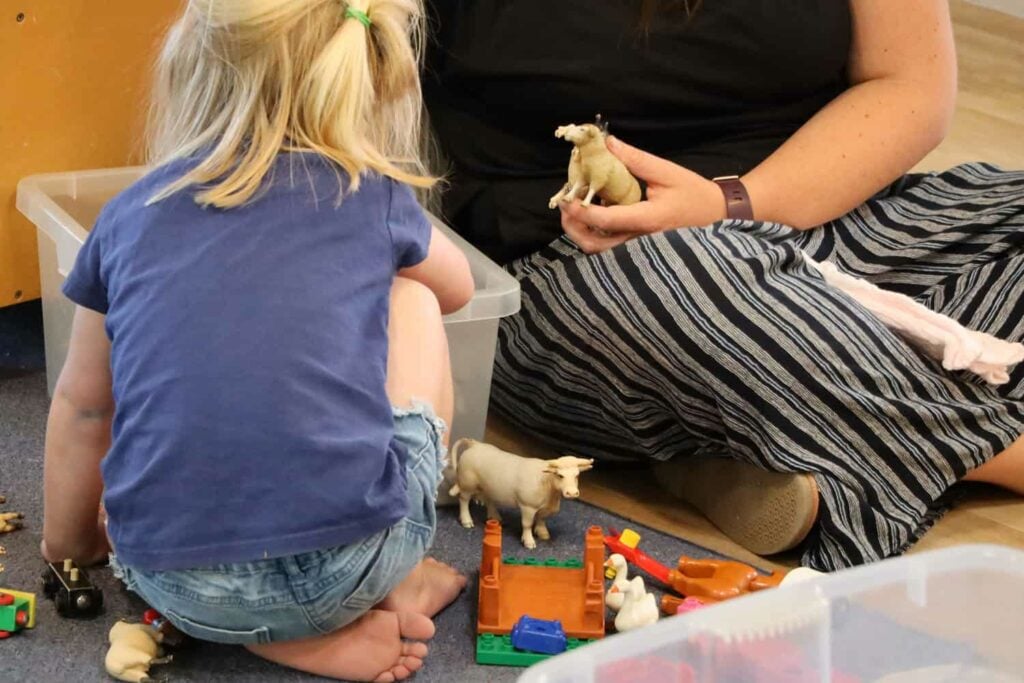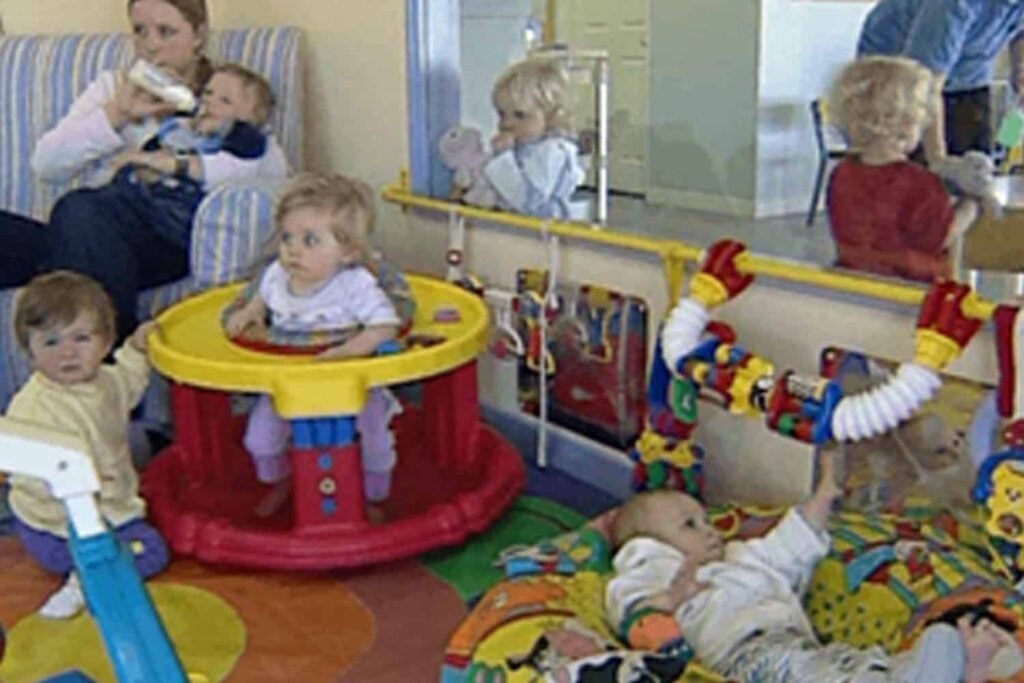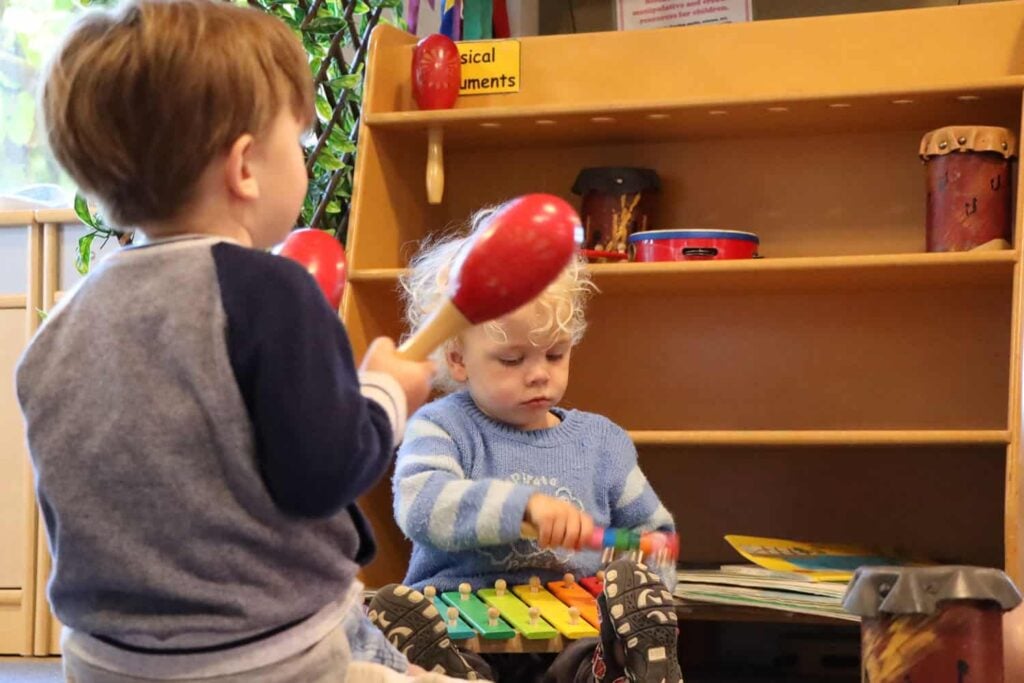Teacher-led Centres.
By Dr Sarah Alexander.
Professionally staffed, teacher-led centres are those that you can leave your child at – these centres are both childcare and early childhood education centres.
At teacher staffed centres you drop your child off and pick your child up when you are ready, or at a time that is specified for all children at the centre to be picked up.
There is no expectation or requirement for parents and family members to stay and be involved in children’s play and learning or assist in the daily programme.
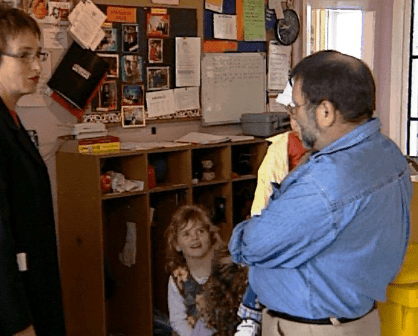
Kindergartens
Most Kindergarten Associations in New Zealand have changed their kindergartens from the traditional sessional service of around 3 hours daily to all-day hours. Many kindergartens also accept children under two or three years of age.
In difference to childcare centres however most kindergarens still close for school holidays and provide children (and teachers) with the same holidays that we think older children deserve and need.
Kindergarten teaching come under the State Services Act for salaries and conditions of work.
Diversity in Philosophy and Ownership
There is a vast array to teacher-led centres, including Montessori schools, Rudolf Steiner Kindergartens.
There are some that serve a particular purpose e.g. to teach Christianity, to provide a Jewish early education, to provide an early childhood service for a Chinese community or for parents wanting children to attend a Pasifika centre.
Most centres are independently operated by community groups, private individuals, companies or corporations. Some are operated by companies for employees children only, others from government departments and public institutions such as Universities and Hospitals for clients, staff, or students from the institution.
Teacher-led centres provide childcare, many are full-day services, and many accept children from as young as birth and up to 6 years of age. It is not required in NZ that children start primary school until they are six years of age, and many early childhood centres, welcome 5 year olds to stay in their programme if parents choose this.
The Parents who Usually Choose Teacher-led Centres?
To choose a Centre that is run by staff (not by parents) you are most likely to be:
- In employment or self-employed during day-time hours.
- An at-home parent without other adult family members or friends available to give you a regular break from caring for your child.
- A parent who is experiencing difficulty in managing your child’s behaviour or other developmental issues and who would find it helpful to have the support of professionals for advice and watching what they do.
- An at-home parent with a child who doesn’t have any or many other peers to play with at home or in the same street/road/neighbourhood.
- Someone who is seeking reliability in childcare arrangements – centres don’t close when staff are sick as centre managers will call in relieving staff.
- A parent with one child under 5 years of age – because if you have two or more young children employing a nanny (who will also help with cooking and household chores) can make better economic sense (especially if you have school aged children as well and am needing after-school and school holiday care).
Children Who are Likely to Fit In Well
First born children in a family and children with few or no peers to play with at home or in their neighbourhood are likely to benefit most from attending a staffed centre, as there will be a large number of different children to watch and interact with.

Children including infants who are especially vulnerable, and whose parents are stressed, sad, going through marital problems, tired, or not feeling terribly positive about their parenting or their child, will benefit most from attending a staffed centre where they can get some time out from their parent and home circumstances.
The children of new immigrants to NZ are likely to find that they quickly learn NZ customs and English by being in a group daycare setting without their parents – however this doesn’t help parents who may find it better to be at a parent-involved centre where they can learn English (or Maori) alongside their child.
Children whose parents have little time to take them places or to play with them because they are in employment or busy doing other things.
Possible Problems and Difficulties
When you leave your child at a teacher-led centre there is no one person to leave your child with. This can be a problem in centres where you walk in through door and straight into the playroom and there is no adult near the entrance to greet children and parents or who will leave their activity to say hello and take your child from you. In kindergartens owned by kindergarten associations it has been reported by some parents that because of the free-play approach and open-door policy not all teachers remember a child’s name. Once you settle your child into an activity such as playing at the playdough table it can leave you feeling uncertain as to whether or not to leave because no staff member has come over to make a personal connection with your child.
If your child is not wanting you to leave this can be a source of stress for you both and its made worse by not being made welcome and included when you arrive. You may have to take charge of the situation and take your child to a member of staff each time you arrive and make sure that the staff member is supervising and has involved your child in a group activity.
If a child or adult or someone they have had contact with outside of the centre contracts a contagious notifiable disease, such as measles, the centre may be closed down to prevent an outbreak. Or, younger not-fully immunised children may be excluded for a period of time from attending. In this case the reliability of childcare which you thought you had goes out the window and you will need to quickly make alternative arrangements for possibly two weeks or more if you can not get time off from work.
The company or incorporated society that owns the centre may go into liquidation or be closed down by the Ministry of Education with very short notice or no notice at all to parents. It may be especially hard for you to find childcare at short notice, if the company or society operates many centres meaning that you will be competing with many children and families to get a scarce childcare place at one of the centres not under the management of the company or society.
You may think that because you have enrolled your child in a community-owned centre, say in a kindergarten run by a kindergarten association, that if the majority of parents want or don’t want a change then the parents’ opinion is what counts. However, the boards or managers of some community-owned centres may give parents little say on management decisions such as the hours that sessions will operate or who will be employed as teachers.
When you enrol your child at a centre you enrol with the centre and not with the staff. The staff who you thought were great and were the reason why you decided to enrol at a particular centre may change – or the one staff member that your child really relates particularly well with might be put onto other duties or shift to another centre if its part of a larger management group.
You only need say 7 hours of childcare a day, but the centres with vacancies for new children only have 4 1/4 or 6 hour hour places available or require you to enrol for 8 or 10 hours a day and pay for the extra hours on top of the 6 hours a day free ECE paid for by the government under the 20 hour week scheme. You may be forced to accept unsuitable hours or to pay extra in order to get access to a childcare place.
Flexibility with the arrangement may be a problem. If you need extra hours of childcare, or want to reduce your hours of childcare you may have to give a fortnight or up to one-term notice. Additionally if you go away on holiday while the centre is open, the centre may have a policy that you are required to continue to pay full-fees or a reduced fee. Some centres charge fees on Public holidays if you would ordinarily attend on the same day as the Public Holiday.
In their first childcare placement for the first months especially children are likely to get sick and pick up many minor illnesses, coughs and colds etc. And they bring this home to their parents and family who may get sick too. The illnesses usually do not have long-term consequences. However, you may be wise to plan ahead knowing you might have to use a lot of your sick leave in the first months.
Popularity
Popularity is not an indicator of quality. Attendance at any type of service can be driven by government policy and financial incentives, the advertising budgets of particular services especially larger services with multiple centres, and knowledge of the choices your parent made for you as a child.
The number of enrolments in kindergartens owned by Kindergarten Associations has dropped dramatically since 2007. An explanation for this is not that kindergartens owned by Kindergarten Associations are becoming a less popular choice but that kindergartens are accepting fewer children overall as they move from part-day to full-day hours.
All other childcare services, including licensed daycare and creches, A’oga Amata and other cultural language centres, Montessori centres, and Rudolf Steiner kindergartens are grouped together and called ‘education and care’ centres for statistical purposes by the Ministry of Education. As a group these diverse centres have had a considerable increase in the number of children attending, in keeping with both population growth, expanding the number of places available for infants and toddlers, and likely picking up some children unable to be catered for by Kindergarten Associations.
How to Find Teacher-Led Centres in Your Area
Go to the early childhood service directory at the My ECE website for parents. Using the directory you can search for services anywhere in NZ and compare the characteristics of different services in your area. Look up different services in your area and check what parents say about them and what rating they give.



